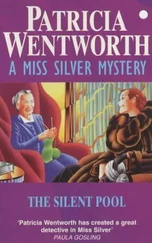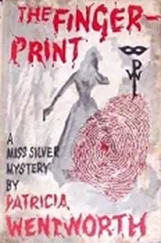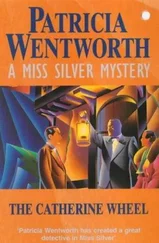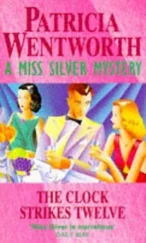She looked straight at Henry as she spoke.
“I’m going, whatever you say, and whatever you do, and I only came to you because——”
“Because——”
“Well, it seemed so sort of lonesome going off into situations of deadly peril with no one taking the very slightest interest.”
Jane’s voice shook absurdly on the last word. And in an instant Henry had his arm round her and was saying, “Jane—Jane—you shan’t go, you shan’t.”
Jane stepped back. Her eyes blazed. “And why?” she said.
She tried to say it icily, but she could not steady her voice. Henry’s arm felt solid and comfortable.
“Because I’m damned if I’ll let you,” said Henry very loud, and upon that the door opened and there entered Mrs. de Luttrelle March, larger, pinker, and more horrified than Jane had ever seen her. She, for her part, beheld Henry, his arms about a shabby girl, and her horror reached its climax when she recognised the girl as “that dreadfully designing Jane Smith.”
“Henry,” she gasped—“oh, Henry!”
Jane released herself with a jerk, and Mrs. de Luttrelle March sat down in the nearest chair and burst into a flood of tears. Her purple satin opera cloak fell away, disclosing a peach-coloured garment that clung to her plump contours and seemed calculated rather for purposes of revelation than concealment. Large tears rolled down her powdered cheeks, and she sought in vain for a handkerchief.
“Henry—I didn’t think it of you—at least not here, not under my very roof. And if you were going to break my heart like your father, it would have been kinder to do it ten years ago, because then I should have known what to expect, and anyhow, I should probably have been dead by now.”
She sniffed and made a desperate gesture.
“Oh, Henry, I can’t find it! Haven’t you got one, or don’t you care whether my heart’s broken? And I haven’t even got a handkerchief to cry with.”
Henry produced a handkerchief and gave it to her without attempting to speak. Years of experience had taught him that to stay his mother’s first flood of words was an impossibility.
Jane felt rather sick. Mrs. March was so very large and pink, and the whole affair so very undignified, that her one overmastering desire was to get away. She heard Henry’s “This is Miss Smith, Mother. She came to see me on business”; and then Mrs. March’s wail, “Your father always called it business too, and I didn’t think—no, I didn’t think you’d bring a girl in here when my back was turned.”
Jane stood up very straight, but Henry had taken her hand again.
“I beg your pardon,” he said, in a very low voice. “She—she had a rotten time when she was young”; then, in a tone that cut through Mrs. March’s sobs as an east wind cuts the rain, he said:
“My dear mother, you are making some extra-ordinary mistake. The last time that I saw Miss Smith was three years ago. I then asked her to marry me, and she refused. I would go on asking her every day from now to kingdom come if I thought that it was the slightest good. As it isn’t, I am only anxious to be of use to her in any possible way. She came here to-night to ask my advice on an official matter.”
Mrs. March fixed her very large blue eyes upon her son. They were swimming with tears, but behind the tears there was something which suddenly went to Jane’s heart—something bewildered and hurt, and rather ungrown-up.
“You always were a good boy, Henry,” said Mrs. March, and Henry’s instant rigid embarrassment had the effect of cheering Jane. She came forward and took the limp white hand that still clutched a borrowed handkerchief.
“I’m sure he’ll always be a good son to you, and I wouldn’t take him away from you for the world. He’s just a very kind friend. Good-night, Mrs. March.”
She went out without looking back, but Henry followed her into the hall.
“You’re not really going to plunge into this foolish affair?” he said as they stood for a moment by the door. It was Jane who opened it.
“Yes, I am, Henry. You can’t stop me, and you know it.”
Jane’s eyes looked straight into his, and Henry did know.
“Very well, then. Read the agony column in The Times . If I want you to have a message, it will be there, signed with the day of the week on which it appears. You understand? If the message is in The Times of Wednesday, it will be signed, ‘Wednesday.’ And if there are directions in the message, you will obey them implicitly.”
“How thrilling ,” said Jane.
“Is it?”
Henry looked very tired.
“I don’t know if I’ve done right, but I can’t tell you any more just now. By the way, Molloy’s flat will be watched, and I shall know whether you go to Luttrell Marches or not. Good-bye, Jane.”
“Good-bye, Henry.”
Henry watched the lift disappear.
Table of Contents
“This,” said Arnold Todhunter, “is the fire-escape.” His tone was that of one who says, “This is our Rembrandt.” Proud proprietorship pervaded his entire atmosphere.
“Ssh!” said Jane.
They stood together in a small back-yard. It seemed to be quite full of things like barrows, paving-stones, old tin cans, and broken crockery. Jane had already tripped over a meat tin and collided with two chicken coops and a dog kennel. She reflected that this was just the sort of back-yard Arnold would find.
Everything was very dark. The blackest shadow of all marked the wall that they were to climb. Here and there a lighted window showed, and Jane could see that these windows had rounded parapets jutting out on a level with the sill.
Arnold, meanwhile, was tugging at something which seemed to be a short plank.
“What on earth?” she whispered.
“We shall need it. I’d better go first.”
And forthwith he began to climb, clutching the plank with one hand and the iron ladder with the other.
Jane let him get a good start, and followed.
The ladder was quite easy to climb; it was only when one thought of how immensely far away the skyline had looked, that it seemed as if it would be very uncomfortable to look down instead of up, and to see that horrid little yard equally far below.
Jane did look down once, and everything was black and blurred and shadowy. It was odd to be clinging to the side of a house, with the dark all round one, and the steady roar of the London traffic dulled almost to nothingness.
The night was very still, and a little cold. Somewhere below amongst the tin cans a cat said, “Grrrwoosh,” not loud, but on a softly inquiring note. The inquiry was instantly answered by a long, piercing wail which travelled rapidly over four octaves, and then dwelt with soulful intensity upon an agonising top note.
With a muttered exclamation, Arnold Todhunter dropped his plank. It grazed Jane’s shoulder, and fell among the cats and crockery with a most appalling clatter.
Jane shut her eyes, gripped the ladder desperately, and wondered whether she would fall first and be arrested afterwards, or the other way about. Nothing happened. Apparently the neighbourhood was inured to the bombardment of cats.
After a moment Jane became aware of Arnold’s boots in close proximity to her head. A wave of fury swept away her giddiness, and she began to descend with a rapidity which surprised herself.
Once more they stood in the yard.
Once more Arnold groped for his plank.
“I’m going up first,” said Jane, in a low tone of rage. “I won’t be guillotined on a public fire-escape. Which floor is it?”
“The top,” said Arnold sulkily, and without more ado Jane went up the ladder.
It was exactly like a rather horrid dream. The ladder was very cold and very gritty, and you climbed, and climbed, and went on climbing without arriving anywhere.
Читать дальше












